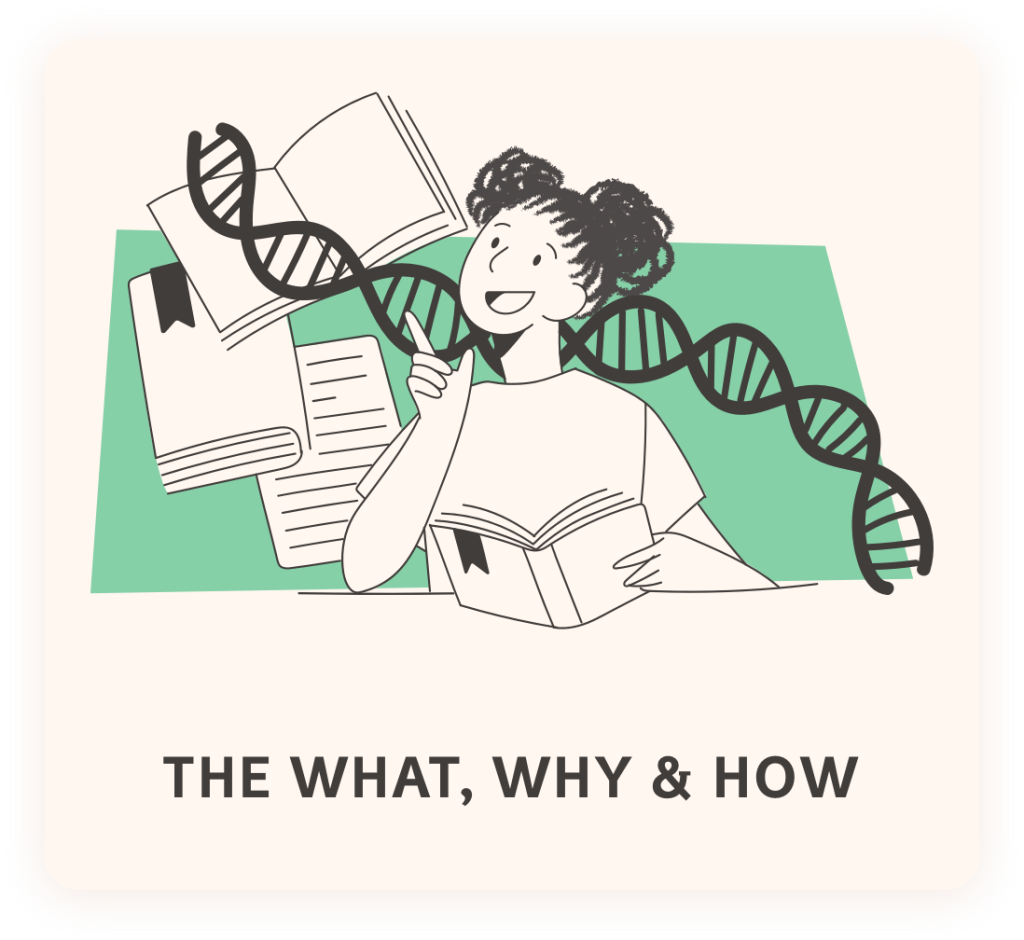- Start
- FA-INFO-KIT
- Infopool
Ansprechpartner & Unterstützung
Die DFA-Hilfe an Ihrer Seite
- Oral Screening
- Kontakt
FA-Lexicon: Basics
Influencing Factors

Further chapters from „Basics“
FA can be very diverse
You may also know other people with FA. Therefore you know that FA can affect people very differently. One disease – many faces!
Despite the inherited defect in the ability to repair cell damage, there is a wide variety of clinical aspects to FA. Some people with FA hardly experience any issues, whereas others may experience many. Some get no cancer or only get cancer once, and others get cancer repeatedly. Even in monozygotic FA twins who are genetically identical, there can be vast differences.
Why are there different presentations of FA?
In addition to genetics, other factors are likely involved in the development of diseases like cancer. One term you hear over and over again is “lifestyle”.
The main factors for a good lifestyle are known to all of us: not smoking and being careful with alcohol, eating well, getting enough exercise, getting good sleep, maintaining a normal weight, avoiding or balancing stress, connecting socially, having a purpose in life, etc .
Two things...
There are no specific FA studies on the impact of lifestyle factors. Therefore, we don't know what doesn't apply, or applies particularly, to people with FA. Nevertheless, we can assume that the results of any studies performed in the general population can also be extrapolated to FA individuals. Two major things to keep in mind:
DON´T Smoke!
Tobacco smoke is a complex mixture of more than 4,000 chemicals, at least 50 of which have been shown to cause cancer. These substances can lead to cell damage, for example in the oral mucosa. Since the repair mechanism of your cells is disrupted by FA, it therefore makes sense that smoking is not a good idea for those affected by FA. Incidentally, the same applies to chewing tobacco and snuff.
DO Exercise!
Move three times a week for 30 minutes. Regular, shorter sessions are better than, for instance, two hours once a week. Swimming, cycling, dancing or jogging, for example, are considered to be particularly good. Studies show that people who are physically active can reduce their risk of cancer by around 25%! Physical activity supports what are known as tumor suppressor genes, which suppress the growth of cancer cells. Sport also helps your mental health and, according to studies, helps you to deal better with stress and anxiety.
Science
Here you can find the scientific ressources of the App FAexam.
Intro Video
Learn here how to provide your health journey.
All Info
Here you can find all icare-infos on one spot.

